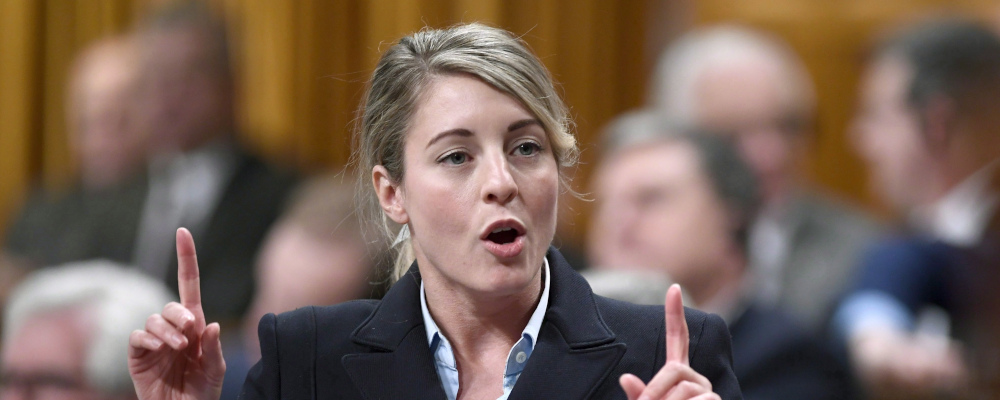I was thinking this week about a public servant I knew in Ottawa. He was a long-time member of a government agency and had served for several years as the agency’s deputy chairman.
When the chairman was forced to step aside for a time for health reasons, he took on the duties of acting chairman, which he performed exceptionally. When the chairman retired, this man was the obvious choice to replace him. He was a model public servant: diligent, discrete, independent of the government but politically alert. He was qualified in every way for the job, except one: he didn’t speak French at the level required to lead a national agency.
I was going to write that he wasn’t bilingual, but that wouldn’t be accurate. As an adult immigrant to Canada, he spoke several languages fluently and several more dialects from his country of birth. But hard as he tried, he couldn’t get his French up to the necessary level. And he did try hard. He took the lessons provided by the government of Canada to senior public servants and even paid for extra private tutoring.
After more than a year as acting chairman, his French was better than that of most sesquilingual Canadian high school graduates, but it still fell just short of the necessary fluency. So he went back to his deputy position and a francophone with passable English from outside the agency was appointed agency chairman.
I recalled this story as I read the Liberal government’s plans to change the law to require future Supreme Court of Canada justices to be fluently bilingual.
Although the current government has, for the last five years, followed a self-imposed practice of requiring new Supreme Court justices to be “functionally” bilingual — a deliberately undefined Ottawa ambiguity intended to appease French language interests without unduly restricting the government’s hand — Bill C-32 changes this in two ways. First, it turns an informal policy into a legal requirement and, second, it will require new Supreme Court justices to be able to hear cases in both languages “without the aid of an interpreter.” Considering the technical and jargon-heavy nature of many areas of law, this is a much higher bar than “functional” bilingualism.
In theory, the new law is intended to reflect our country’s policy of official bilingualism at the federal level; in practice it will severely restrict the pool from which future justices are chosen in ways that will run up against the government’s professed desire for a more diverse and representative judiciary.
Marion Buller, the first female First Nations judge in British Columbia, has objected that “a requirement that [Supreme Court justices] be bilingual” is “simply eliminating too many people.” And Brad Regehr, the first Indigenous president of the Canadian Bar Association believes the new bilingualism requirement will “create a systemic barrier” and suggested it would get in the way of appointing “a highest court that reflected the makeup of our country [which] it doesn’t right now.”
Buller and Regehr are right. The new law introduces a barrier that will disproportionately affect not just Indigenous, but immigrant, rural, Western, Northern, regional Quebec, and working class Canadians. It’s simply a matter of numbers.
The new policy would have meant Alberta-born Beverley McLachlin would not have qualified at the time of her appointment in 1989.
The 2016 census recorded 6.2 million bilingual Canadians, with almost 60 percent of those living Quebec. Outside Quebec, fewer than 10 percent of Canadians are bilingual. In British Columbia and Alberta, only one in 16 residents are bilingual, while in Saskatchewan the number is fewer than one in 20.
Even in Ontario, with its strong Franco-Ontarian population and the officially-bilingual capital region of Ottawa, only about one in 10 residents is bilingual. While these numbers provide a good sense of how limiting the new Liberal law will be, they don’t tell the deeper story of who will be excluded by the policy, and why.
Language is best learned in childhood and, though it seems obvious to say it, children don’t choose their schools. Whether a child attends a French immersion school or is encouraged to learn French or English will depend on whether the resources are available locally and whether their parents choose them. For many children from rural Canada, including in Quebec, it is unlikely even to be an option. Bill C-32 means your future qualification for the Supreme Court of Canada may end up turning on the lottery of birth and postal codes.
The easy response to lawyers who feel aggrieved by the new law is to just learn French (or English). It is, of course, possible to learn a language later in life, but doing so takes time that most people don’t have. An ambitious 30-something lawyer working 75 hours a week, balancing their practice with a family, volunteering, professional development, and recreation, has little time or mental energy left over for private French (or English) lessons on the off chance that one day they might be considered for the Supreme Court of Canada.
Even those who do have the time and make the effort may, like the public servant in Ottawa, find they have passed the window for mastering a new language.
Buller and Regehr’s concerns point to an awkward truth about even well-intentioned diversity policies. The distribution of one desirable trait, like bilingualism, may not neatly map onto the distribution of other desirable traits, like racial, regional, or political diversity. In that case, checking some boxes will make it harder to check other boxes. Whether it acknowledges these trade-offs or not, when it comes to the composition of the Supreme Court of Canada, the Liberal government has chosen to elevate language above other forms of diversity.
There will still be candidates who can check all the desired boxes, like the most recent appointee to the Supreme Court, the impeccably qualified bilingual Ismaili immigrant Mahmud Jamal, but the new policy would have meant small town Alberta-born Beverley McLachlin would not have qualified at the time of her appointment in 1989, when by her own admission she was not even functionally bilingual, much less fluently so.
If Bill C-32 become law, future Supreme Court appointees will be chosen from a pool that is more urban and upper middle class, whose parents sent them to a school with strong language programs, or could afford to spend time in Quebec or France at an age when new languages are absorbed easily. Or they will be federal public servants who are encouraged in their bilingualism by employer-provided and taxpayer-funded language training, which will further narrow the intellectual diversity of available candidates.
It will privilege public sector over private sector experience, the perspective of the government over the perspective of the governed, and favour professional formation in an environment that skews to the left of the general population. In other words, the pool of potential Supreme Court justices will become more Laurentian and more elite.
Cynics will say that these objections are missing the point, that the new language laws, introduced on the eve of a likely election after four years of thumb-twiddling, are not meant to improve the Supreme Court of Canada, only the Liberal seat total in Quebec. The cynics, as usual in politics, have a point. But even if you are able to choke back your skepticism and accept that the new law is truly well-intentioned, it would still be bad news.
Well-intentioned governments are prone to forgetting that reality cannot be forced to fit their ideals, and the more aspirational a policy is, the more unintentional harm it is likely to cause in the real world. That’s the case with the Liberals’ new Supreme Court bilingualism rule.
Cynical or idealistic, the message to the new immigrant lawyer, to the outstanding regional Quebecois lawyer, to the small-town law school graduate, and even to some long-time Ottawa public servants is: I’m sorry, but you should have been born somewhere else or into a family farsighted enough to put you on a childhood path to the Supreme Court.
Recommended for You

Need to Know: Legacy media has a diversity problem

‘A celebration of the spirit of Alberta’: Ryan Hastman on the political, economic, and cultural importance of the Calgary Stampede

‘Can we actually be an independent country?’: Michael Ignatieff on the 60th anniversary of Lament for a Nation

Fred DeLorey: Why the NDP may be in even bigger trouble than we think




